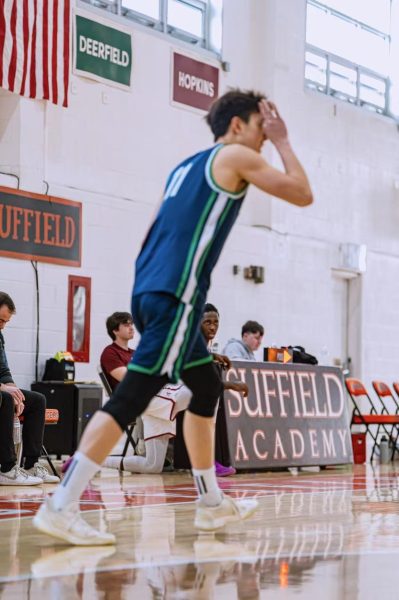Decision Made Official: Tablet Declared Winner
By Rachel Wender ’13 and Mairead Poulin ’13
 This spring, there is one word that seems to be constantly whispered across campus: tablet. That’s thanks to the new “tablet” policy starting next year, which states that every student will rent a Microsoft Tablet from the school instead of ordering textbooks for their classes. Although some people think it is a good idea for the campus to switch to this newer, better technology, others say that we need to hold onto our traditional way of reading.
This spring, there is one word that seems to be constantly whispered across campus: tablet. That’s thanks to the new “tablet” policy starting next year, which states that every student will rent a Microsoft Tablet from the school instead of ordering textbooks for their classes. Although some people think it is a good idea for the campus to switch to this newer, better technology, others say that we need to hold onto our traditional way of reading.
When the first “e-reader,” or electronic reader, was built at the height of the electronic age (only two or three years ago), it was originally advertised as a device meant for vacations, planes and beaches. “Take your books on the go.” But students soon realized that buying an “ebook” of their textbooks was much cheaper than the real thing, and thus the tablet craze began in schools and universities across the country.
“Ebooks”, or books bought using an “e-reader,” have been shown to be in some cases more than fifty percent cheaper than an actual textbook. Why do textbook companies make their products so expensive? Because they can. Teachers always require textbooks to teach their classes, so students always need them, no matter the cost.
History teacher Ms. Klumpp is a strong advocate for the new Williston policy. “[A tablet] costs much less and is lighter to carry. They will be easier and more convenient [than textbooks],” she notes. Klumpp has seen many a textbook come and go throughout the past twelve years here at Williston. Although she may only have one textbook requirement for her AP European History class, it costs over one hundred dollars.
Klumpp adds that this policy will unify the campus, putting everyone at the same technological level. “Not everyone can afford their own laptop, but the school is offering financial aid for those who cannot afford the tablets.” She believes very strongly that this new program “can only bring improvements in the way we learn and communicate,” and will “bring the school into the 21st century.”
Not everyone, however, is quite as enthusiastic about this new policy as Ms. Klumpp. Ali Brooks ’14 has more than a few issues with the new policy. “The light from the tablets is bad for your eyes, they break often, and if you lose yours, you’re not just losing one textbook, you’re losing all of them,” she says. She is also worried about “apps” and games bought from the tablet causing a distraction for students trying to do work in class. “I think students will take advantage of it. I know I get very easily distracted.”
One of the biggest problems Brooks has with the new program is not about cost or textbooks, but about a tale as old as time itself: Microsoft vs. Apple. An Apple consumer herself, Ali argues “if you’re paying for [your Tablet] anyways, you should be able to get the system of your choice, instead of being forced to get something [you] don’t want.”
Mackenzie Zehring ’14 also wishes she had more choice in the matter; “I’d rather just have a book. I prefer it, and I don’t think I should have to buy a tablet if I don’t want to…I like the idea of a textbook…It’s simple. It doesn’t do five different things. It’s just the book that it is.”
In this time of new technology, have our old ways of learning become obsolete? Is that old fashion, and somewhat romantic, picture of sitting down and reading a paperback book history? Is it time to get on board with this rapidly popular technology, instead of risking falling behind?
The school seems to think so. While some are excited for this new expedition the school is going on, others hope we will turn back midcourse. Much like last year’s new schedule debate, only time will tell who will like the new policy, and whether or not it will prove to be the right choice for Williston.










Julie Carney • May 21, 2013 at 8:53 PM
What is the charge for ‘renting’ the tablet for the school year, and is this a total departure from traditional textbooks? Seems a bit extreme if it is. Students have different learning styles, and if a student prefers a book and learns better with this tactile method they should have the right to use one (although my observation is that many students prefer the electronic method). A student who prefers the e-reader should be able to use that. In short–there should be a choice.